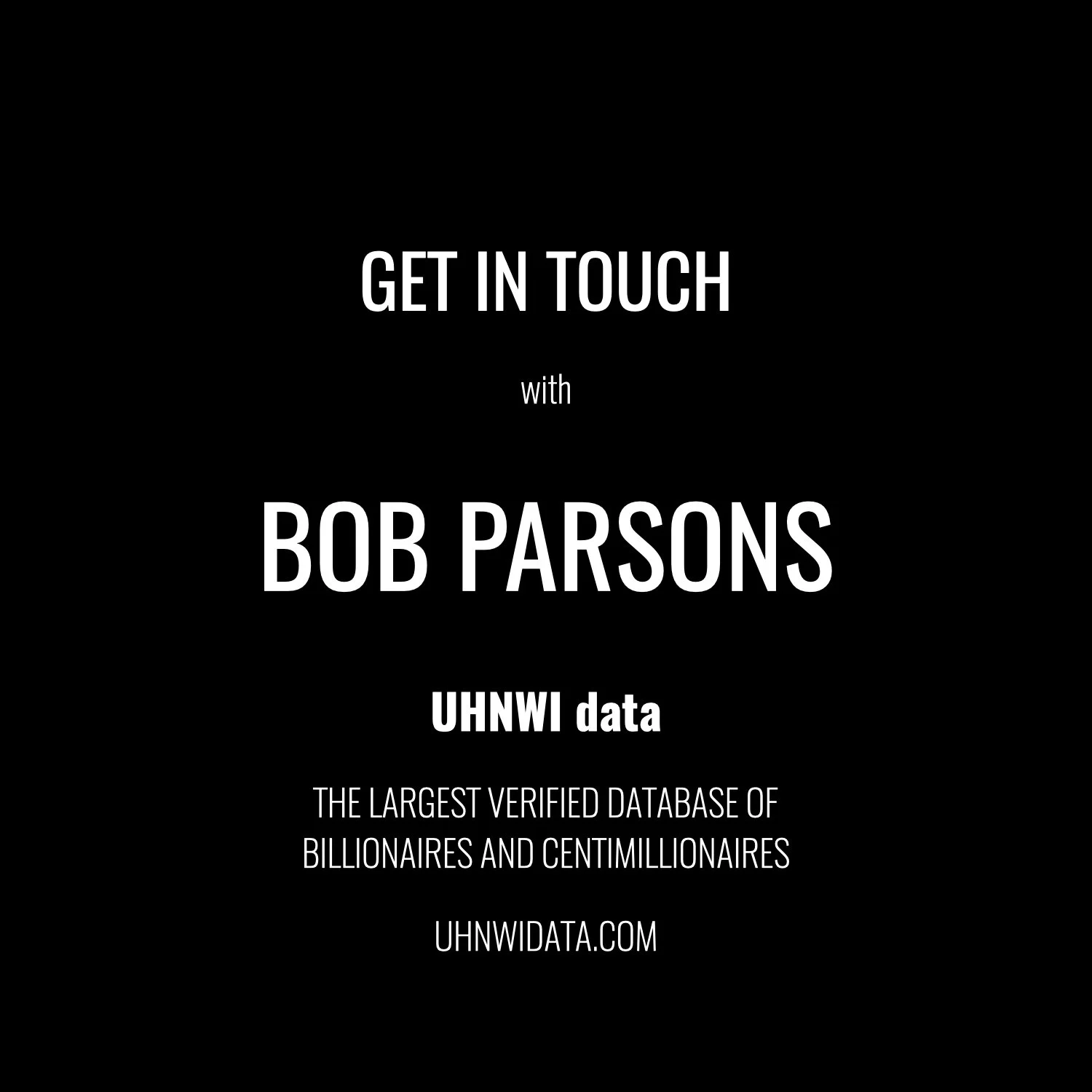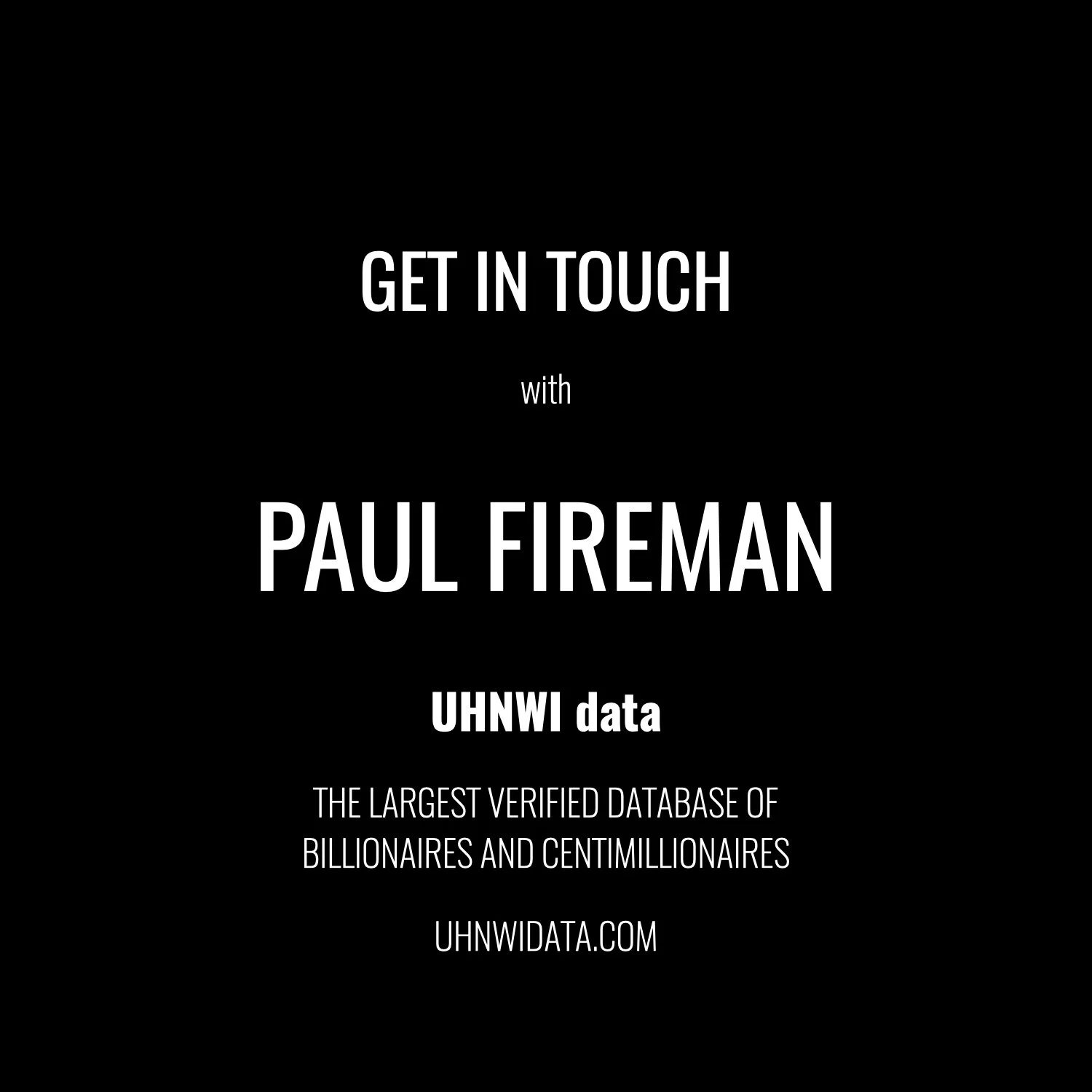John Foley is an American entrepreneur and business executive best known as the co-founder, former chief executive officer, and former chairman of Peloton Interactive, Inc., a connected fitness company that revolutionized home exercise equipment through its internet-connected bikes, treadmills, and subscription-based streaming classes.[1] Born in 1971 in Houston, Texas, and raised in the Florida Keys, Foley grew up attending public schools and worked night shifts at a Skittles factory to fund his education, eventually earning a bachelor's degree in industrial engineering from the Georgia Institute of Technology in 1994 and an MBA from Harvard Business School.[2][3][1]
Foley's early career began in engineering and operations at Mars, Inc., where he worked from 1990 to 1996, starting as an engineer and advancing to operational shift manager, including a transfer to Los Angeles focused on consumer products.[1] In 1997, he became CEO of Evite.com, an online invitation service, and later served as CEO of Pronto, a vertical search engine, until 2010.[1] From 2010 to 2012, Foley was president of e-commerce at Barnes & Noble, Inc., where he contributed to the launch of the Nook e-reader.[1][4]
Inspired by the challenges of maintaining fitness after becoming a father, Foley co-founded Peloton in 2012 alongside Hisao Kushi and Yony Feng, bootstrapping the venture initially and launching its first product via a Kickstarter campaign in 2013.[5][6] Under his leadership as CEO, Peloton grew rapidly, going public in 2019 with an $8 billion valuation and experiencing explosive demand during the COVID-19 pandemic, though it later faced challenges including a stock price decline and operational restructuring.[3] Foley stepped down as CEO in February 2022 amid these pressures, transitioning to executive chairman, and fully exited the board in September 2022.[7][8]
Following his departure from Peloton, Foley co-founded Ernesta in 2022 with former Peloton colleagues Kushi and Feng, launching a direct-to-consumer custom rug company backed by $25 million in Series A funding from Addition and True Ventures; the business emphasizes U.S.-sourced production and mid-tier pricing, with sales beginning in spring 2023. As of October 2025, the company expanded nationwide and launched its first television commercial.[9][10] Based in New York City, where he recently sold a Manhattan townhouse for $35.5 million in 2024, Foley's career trajectory highlights his focus on consumer technology and e-commerce innovations.[11]
Early life and education
Childhood and early influences
John Foley was born in 1971 in Houston, Texas, to a family that soon relocated to the Florida Keys, where he spent his formative years in Key Largo.[12][2] His father, a Vietnam War veteran who later became a pilot for Delta Air Lines, and his mother, a homemaker, provided a straightforward, middle-class household that emphasized discipline and self-reliance.[13] This military-influenced family background likely contributed to Foley's early development of a strong work ethic, as his father's service and aviation career modeled perseverance and structured ambition.[12][13]
Growing up in the laid-back yet demanding environment of the Florida Keys, Foley experienced a humble childhood that fostered independence from a young age.[13] At 13, he discovered an interest in fitness by taking up running, participating in local races without the trappings of elite athletics, which planted the seeds for his later passion for accessible exercise.[13] These early pursuits, combined with the Keys' outdoor lifestyle, helped shape his appreciation for physical activity as a communal and motivational endeavor, influencing his eventual focus on innovative fitness solutions.[13]
Foley's entrepreneurial mindset began to emerge through hands-on early jobs that instilled discipline and exposure to operations. Starting at age 14, he worked at a McDonald's in the Florida Keys, beginning on the grill and fry station before advancing to customer-facing roles, where he learned the value of teamwork, efficiency, and direct service.[14] Later, in his late teens and early twenties, he took on night shifts as a production manager at a Mars candy factory in Waco, Texas, manufacturing products like Skittles and Starburst, an experience that built his resilience and provided firsthand insight into manufacturing processes.[2][15] These roles, often grueling and self-funded, honed his determination and operational savvy, laying the groundwork for his future ventures in consumer goods and technology.[2][15]
Education and initial employment
Foley earned a Bachelor of Science degree in industrial engineering from the Georgia Institute of Technology in 1994.[3] While attending Georgia Tech, he participated in a co-op program at a Mars Inc. Skittles factory in Waco, Texas, to help fund his education.[15]
He obtained a Master of Business Administration from Harvard Business School in 2001, self-funding his studies by working overnight shifts as a manager at a Mars candy factory, where he oversaw production of products like Skittles and Starburst and later managed 120 people.[15][16][3]
Foley began his full-time professional career at Mars Inc. shortly after graduation, initially focusing on manufacturing operations in Waco before transferring to Los Angeles to lead production for dog food brands such as Pedigree.[3] Over six years in the late 1990s, he held leadership roles in manufacturing, including midnight shift management and quality assurance tasks like separating defective M&M's from whole ones.[3][16][17]
In 1997, Foley shifted to the consumer technology sector, joining Citysearch—an early online city guide and local search platform—as director of operations, where he gained foundational experience in internet-based services and emerging e-commerce concepts.[3][18] This role marked his entry into digital consumer platforms, building on his operational expertise from manufacturing.[19]
Professional career
Early roles in consumer goods and tech
Following his graduation from the Georgia Institute of Technology in 1994 with a degree in industrial engineering, John Foley began his professional career at Mars, Incorporated, a global leader in consumer goods manufacturing. He initially participated in the university's co-op program at a Mars plant in Waco, Texas, where he gained hands-on experience in production processes for confectionery products like Skittles. Upon completing his degree, Foley joined Mars full-time as a production shift manager, overseeing midnight shifts and operations for brands including Pedigree dog food, which exposed him to supply chain management, quality control, and scaling consumer product manufacturing. Over six years with the company, he relocated from New Jersey to Los Angeles, California, transitioning from engineering-focused roles to broader business responsibilities that sharpened his acumen in consumer-facing operations and product development.[3][19][20]
In 1997, Foley pivoted to the burgeoning technology sector, joining Citysearch.com—an early online city guide and local search platform under InterActiveCorp (IAC)—as one of its initial employees. He advanced through roles such as vice president of business development and general manager, contributing to the platform's growth by forging partnerships and expanding digital directories that connected consumers with local services and events, marking his first deep immersion in internet-based consumer technologies. This period, spanning until 2001, included a brief stint as general manager of notification and access at Ticketmaster (2001–2002), where he worked on digital ticketing innovations amid the dot-com era's challenges. These experiences honed his skills in user engagement and scalable online platforms, bridging traditional consumer goods to digital retail models.[3][21]
After earning an MBA from Harvard Business School in 2002, Foley returned to IAC as president and CEO of Evite.com from January 2002 to March 2005, leading the revival of the online invitation and event planning service following the dot-com bust. Under his leadership, Evite expanded its user base by integrating social features and email notifications, establishing it as a pioneer in direct-to-consumer digital personalization for social interactions and e-commerce tie-ins like gift registries. In March 2005, he co-founded and served as CEO of Pronto.com, a price comparison shopping engine, until around 2010 while remaining with IAC. Foley raised initial funding and built Pronto into a network of vertical shopping sites, such as ProntoStyle for fashion, emphasizing algorithmic search and consumer empowerment in online purchasing—key innovations that foreshadowed his later expertise in e-commerce and hardware-software integration for retail. These roles in Los Angeles solidified his progression from mid-level management to executive leadership, focusing on user-centric digital products and direct-to-consumer strategies.[3][19][21]
Leadership at Barnes & Noble
John Foley joined Barnes & Noble in August 2010 as President of Barnes & Noble eCommerce, where he oversaw the company's online retail operations, including the integration of digital and physical sales channels.[22] In this role, he worked alongside Jamie Iannone, President of Barnes & Noble Digital Products, to drive the expansion of the Nook e-reader platform and enhance e-commerce capabilities on BN.com. Foley's prior experience in consumer goods and technology roles equipped him to lead efforts in bridging traditional brick-and-mortar retail with emerging digital formats.[23]
Under Foley's leadership, Barnes & Noble pursued key initiatives to bolster its digital presence, including the promotion of Nook devices through in-store demonstrations and bundled offerings that linked physical book purchases with digital downloads. These efforts contributed to significant growth in the digital segment; for instance, Nook-related sales surged 140% to $277 million in the first quarter of fiscal 2012, while overall digital content sales quadrupled year-over-year during the same period. The company projected that Nook and digital sales would double to $1.8 billion for fiscal 2012, reflecting successful expansions in online platforms and content libraries.[24] Strategies also involved tech integrations for improved inventory management and customer experience, such as real-time stock visibility across stores and online, to compete in a rapidly digitizing market.[25]
However, Foley navigated substantial challenges from dominant competitor Amazon, whose Kindle dominated the e-reader market with lower prices and a vast ecosystem. Barnes & Noble responded by cutting Nook prices—from $259 to $199 in June 2010—and introducing affordable Wi-Fi models to capture market share, while emphasizing partnerships for exclusive digital content to differentiate from Amazon's offerings. Despite initial gains, intensifying competition led to warnings of losses in the Nook business by early 2012, prompting considerations of separating the digital unit.[26][27][28]
Foley served in his role until June 2012, departing to pursue entrepreneurial opportunities that culminated in co-founding Peloton. His tenure marked a pivotal push toward digital transformation at Barnes & Noble amid fierce rivalry in e-commerce.[23]
Founding and leading Peloton
John Foley co-founded Peloton Interactive in 2012, drawing inspiration from his personal passion for spin classes and the challenges of attending them as a parent of young children. A former executive at Barnes & Noble, Foley envisioned a connected fitness platform that would bring the immersive, community-driven experience of boutique studios like SoulCycle into users' homes through high-end equipment paired with live and on-demand streaming classes. The initial concept faced significant skepticism, with Foley estimating that the company was rejected by investors between 5,000 and 6,000 times before securing early funding. Leveraging his e-commerce expertise from Barnes & Noble, Foley applied a direct-to-consumer model to Peloton, emphasizing seamless online sales and delivery of premium hardware.[29][30]
As CEO from 2012 to 2022, Foley oversaw the development and launch of Peloton's core products, starting with the Peloton Bike in 2014, a $1,995 stationary bicycle equipped with a touchscreen for streaming instructor-led classes. Central to the business was the subscription model, priced at $39 per month, which provided unlimited access to a library of cycling, running, and strength workouts, fostering high user retention rates above 90%. Under Foley's leadership, Peloton expanded its offerings with the Peloton Tread treadmill in 2018, priced at $4,295, and introduced its own apparel line in 2014 to complement the fitness ecosystem. These innovations positioned Peloton as a pioneer in "fitness as a service," blending hardware sales with recurring digital subscriptions to create a holistic at-home workout experience.[31][32][33][34]
The COVID-19 pandemic catalyzed explosive growth for Peloton in 2020–2021, as gym closures drove demand for home fitness solutions; sales surged by 250%, the stock price rose over 400% to a peak of $171 per share, and the company's market capitalization reached approximately $50 billion. This boom elevated Foley to billionaire status, with his net worth peaking at around $1.9 billion tied to Peloton shares, while the subscriber base expanded rapidly to over 6 million connected fitness and app users by mid-2021. However, as pandemic restrictions eased, Peloton encountered severe challenges, including a sharp stock decline of over 90% from its highs amid slowing demand, supply chain issues, and product safety recalls. In response, the company implemented major restructuring, including 20% workforce reductions totaling about 2,800 layoffs in early 2022.[35][36][37]
Facing these headwinds, Foley stepped down as CEO on February 8, 2022, transitioning to the role of Executive Chairman while Barry McCarthy, former Spotify CFO, assumed leadership to steer the company's turnaround. Foley resigned from the Executive Chairman position on September 12, 2022, and subsequently left the board of directors later that year, marking the end of his direct involvement in Peloton's governance amid ongoing financial pressures and a net loss of $2.8 billion for fiscal year 2022.[38][39][40][41]
Launch of Ernesta
In 2022, John Foley co-founded Ernesta, a direct-to-consumer company specializing in custom-cut area rugs designed to fit any room dimensions affordably and with rapid delivery.[42] The business model emphasizes a seamless online platform where customers select from a curated collection of designer-approved styles, materials like wool and natural fibers, and exact sizes without the premiums typical of traditional custom orders, starting at around $200 per rug and arriving in as little as two weeks.[43] This approach draws briefly from Foley's experience with Peloton's direct-to-consumer strategies to simplify home decor purchasing.[9]
Ernesta secured $25 million in Series A funding in November 2022, shortly after Foley's departure from Peloton in February 2022, led by venture firm Addition with participation from True Ventures and investors including David Fixel and John Callahan.[42] Foley assumed the role of CEO, with co-founders Hisao Kushi as chief legal officer and Yony Feng as chief technology officer, leveraging their prior collaboration to build a tech-driven operation focused on efficiency in manufacturing and logistics.[44]
The company's innovations include precision custom-cutting technology that enables non-standard shapes and sizes from over 100 styles, including indoor/outdoor options and seasonal collections like the Spring 2024 line featuring organic patterns in warm neutrals for modern interiors. In September 2025, Ernesta introduced a new Fall collection of timeless textures for comfort and enduring style. On October 28, 2025, it launched The Persian Edit, a collection of 100% wool rugs inspired by classic Persian designs, made modern with custom-sizing and shorter lead times.[45][46][47] Ernesta positions itself against legacy rug retailers by eliminating middlemen and high markups in the $120 billion global market, offering free swatches and samples for trial to reduce buyer hesitation.[48] Sales occur primarily through an online e-commerce site, which expanded nationwide in September 2023 following an invite-only beta launch in May, supplemented by an 800-square-foot experiential showroom in New York City opened in April 2024 and a new showroom in Summit, New Jersey, opened in July 2025 to allow tactile browsing.[49][50]
As of 2024, Ernesta had grown to 32 employees and reported strong early traction, with Foley describing the expansion as "exciting" amid plans for further scaling.[51] The company launched its first major advertising campaign in October 2025, highlighting the accessibility of custom rugs to broaden consumer reach.[52] Operating in a challenging direct-to-consumer environment post-Peloton's downturn, Foley has faced personal financial setbacks from his prior venture's stock decline but remains optimistic, projecting Ernesta could achieve $500 million in free cash flow by 2030 as he rebuilds through disciplined growth.[16]
Personal life
Family and relationships
John Foley is married to Jill Foley, a fitness enthusiast who has been described as highly supportive of his entrepreneurial ventures. She founded and led Peloton's apparel division as vice president until transitioning out in 2022.[53][54]
The couple has two children: a son named Quinn and a daughter named Mae. As of 2020, Quinn was 12 years old and Mae was 9, placing them at approximately 17 and 14 years old in 2025, respectively.[2]
During the peak growth of Peloton in the early 2020s, the Foley family resided in the West Village neighborhood of Manhattan, where they balanced high-profile business demands with family routines, including weekend activities that occasionally involved outdoor chores like gathering firewood.[2][55]
Jill Foley played a supportive role in the family's adjustment to the company's expansion, maintaining a stable home environment amid the intense demands of Peloton's rise, though no specific relocations were required as the business was headquartered in New York City.[56]
As of 2025, the Foley family continues to live in Manhattan, with Jill providing ongoing emotional support following John's departure from Peloton in 2022 and the subsequent sale of assets, including a Hamptons estate in 2023, which impacted their property portfolio but not their familial bonds.[57][58]
Lifestyle and interests
John Foley has long demonstrated a deep passion for cycling and fitness, which influenced the creation of Peloton and continues to shape his personal habits. He personally incorporates Peloton products into his routine, such as using a Peloton Tread for daily runs installed in his home bathroom, and has advocated for accessible home workouts as a convenient alternative to traditional gym experiences. This enthusiasm extends beyond high-tech equipment; Foley occasionally opts for low-tech activities, like purchasing and hauling firewood in New York City's West Village to maintain physical activity.[59][2]
Foley's daily routines reflect a blend of discipline and family-oriented simplicity. He typically wakes at 6 a.m., starts with 40 sips of water, and enjoys a pot of French vanilla coffee while listening to country music on Pandora. Evenings often involve family time, such as attending children's activities followed by casual outings like pancakes at a local diner, or hosting friends for sushi dinners. His interest in technology is evident in his adoption of innovative fitness tools, though he balances this with straightforward hobbies like singing country songs to unwind.[59]
During Peloton's peak success in the early 2020s, Foley's lifestyle included luxurious New York City-area residences, such as a West Village townhouse and a $55 million oceanfront estate in East Hampton, New York. Following Peloton's financial downturn after 2022, which contributed to his net worth dropping from $1.9 billion to $225 million upon his exit, Foley underwent significant lifestyle adjustments, including selling his Manhattan townhouse for $35.5 million in 2024 and the Hamptons property at a loss. In public statements, he has emphasized humility amid these changes, noting, "I’ve lost all my money. I’ve had to sell almost everything in my life," while expressing optimism and a renewed focus on personal resilience and ongoing fitness interests.











